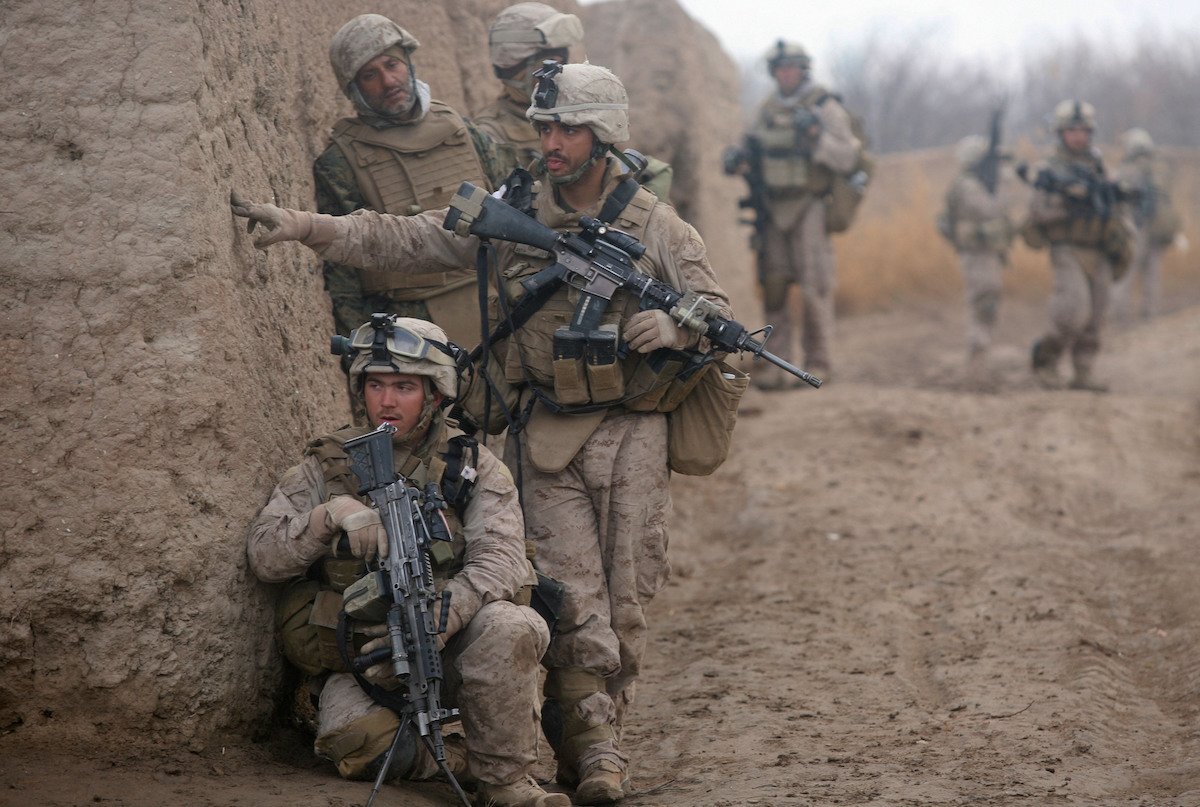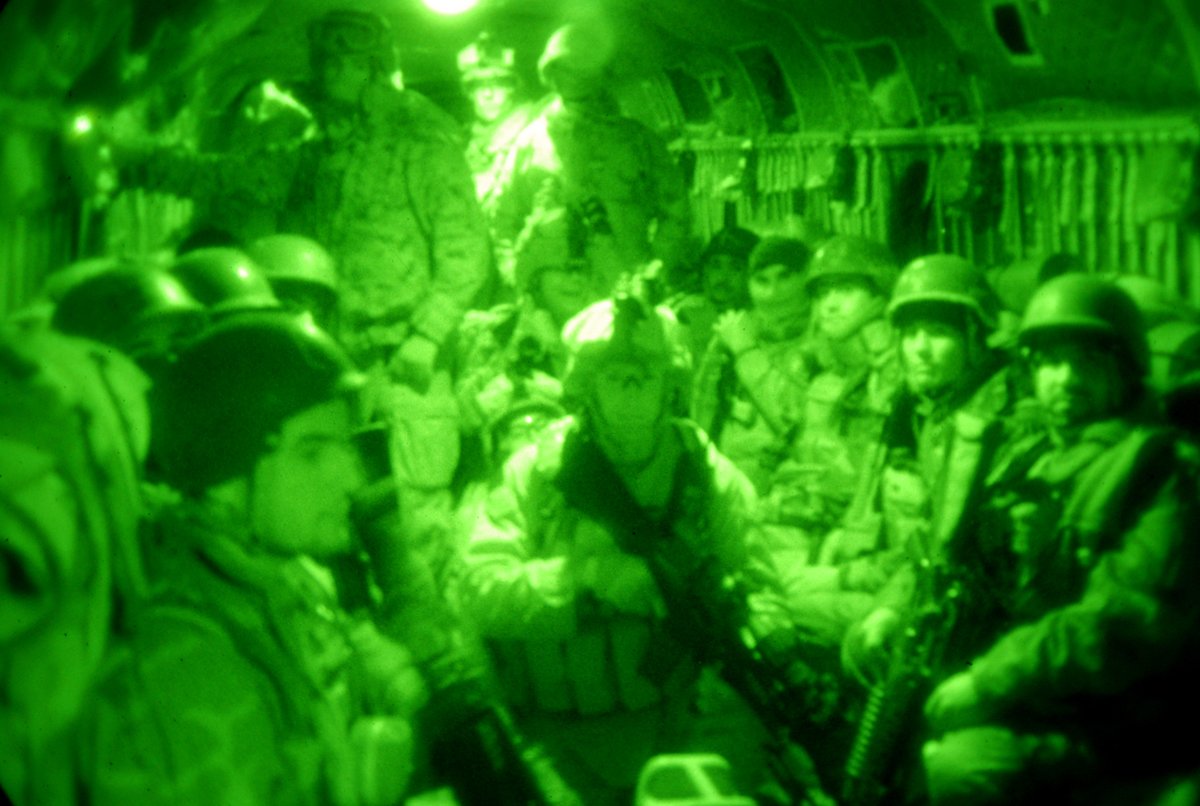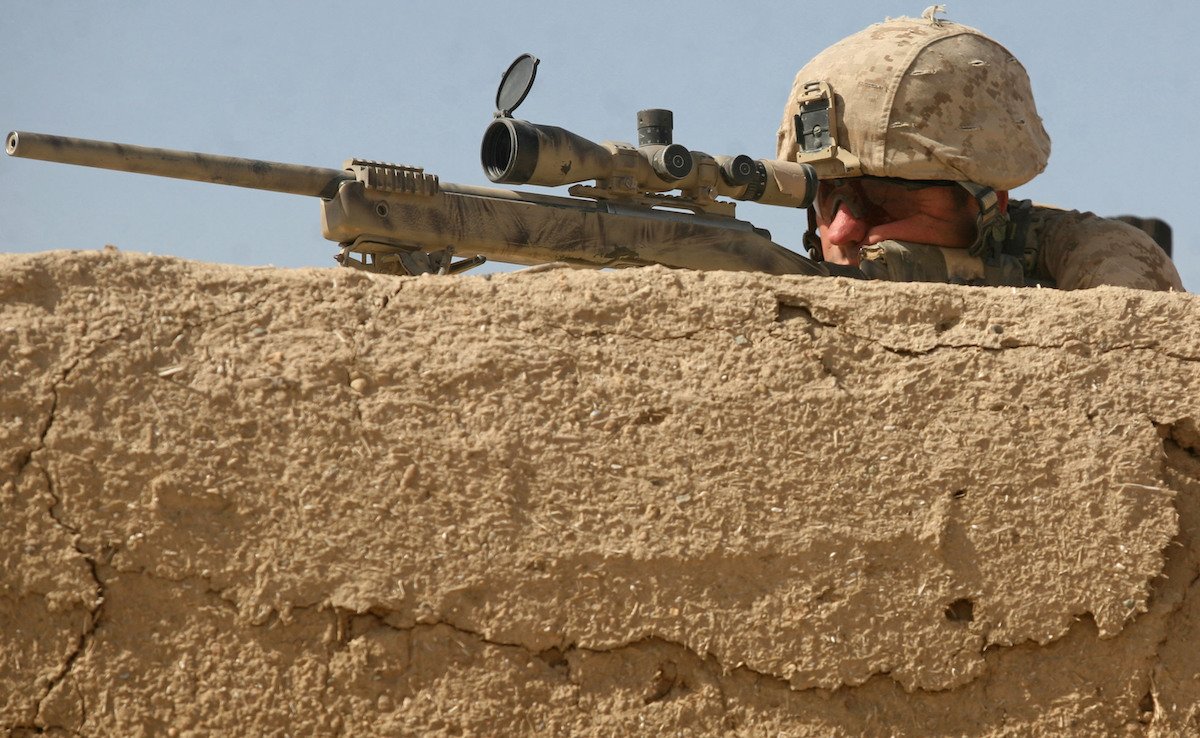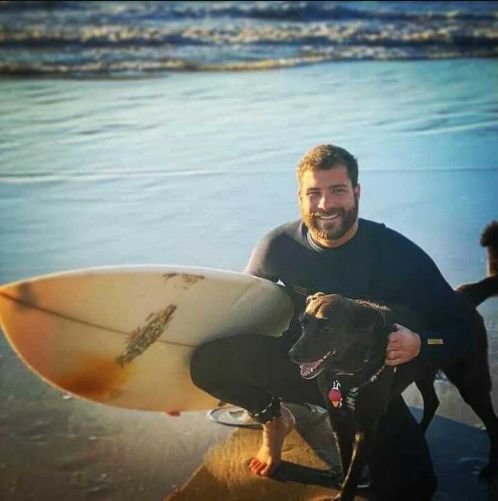12 Years Since Marjah: One Corpsman’s Reflections on the Marines’ Assault

Marines with India Company, 3rd Battalion, 6th Marine Regiment, investigate a possible improvised explosive device while on a patrol during their deployment in 2010. US Marine Corps photo by Cpl. Tommy Bellegarde.
In the early hours of Feb. 13, 2010, Marines and Afghan National Army allies loaded onto more than 60 helicopters bound for the city of Marjah, the last bastion of the Taliban in Helmand province. They touched down a few short hours before sunrise, some landing on the outskirts of the city, while others went for the throat, inserting closer to the city center.
The situation on the ground was unnerving. It was quieter than the Marines had anticipated, with no sign of the Taliban, who had known about the assault weeks ahead of time. The silence didn’t last long. And once the first shots rang out, the Marines from the 6th Marine Regiment were catapulted into chaos — and five months of fighting, in what would be Afghanistan’s largest military operation since the invasion took place a decade earlier.
“We knew it was going to be bad. We got there, it was exactly that,” recalled Petty Officer 1st Class Joe Hardebeck, who served as the senior line corpsman for Bravo Company, 1st Battalion, 6th Marines. “It was just a barrage of firepower coming from both us and them.”
It has now been 12 years since the start of Operation Moshtarak, during which some 15,000 Marines and coalition troops fought alongside Afghan forces to retake a major city in what would later be known as the Battle of Marjah.

The operation was no secret. In fact, in the weeks leading up to the assault, US forces both at home and in theater worked to get the word out that the Americans were coming to seize the city. The aim was to intimidate less extreme fighters into laying down their arms or leaving, while giving civilians enough time to evacuate before the fighting started, according to an analysis by the Institute for the Study of War.
Almost immediately after stepping off of the helicopters, many Marines learned that the Taliban had flooded most of the land outside the city in anticipation of the assault to slow the Americans down.
It worked. Marines inserted around the outskirts of the city were forced to trudge through heavily saturated farmland with all of their weapons and gear, Hardebeck said.
Coalition and Afghan forces managed to seize key intersections and government buildings by the end of the first day, the ISW reported. Resistance from the Taliban was lighter than commanders had initially expected. Instead of attacking the invading forces head on, Taliban fighters retreated farther into the city, leaving countless improvised explosive devices in their wake.
Despite commanders’ optimistic view of the Taliban resistance, Marines on the ground described the fighting as some of the fiercest during the war in Afghanistan.
“We were fighting them in their backyard,” Hardebeck said. “They knew what they were doing.”

The Taliban executed complex ambushes and attacks, utilizing sniper and rocket fire. The fighting never seemed to stop, from day one until Hardebeck’s unit left in July, replaced by another unit charged with maintaining peace in the city. And though the operation was declared a success when it concluded in December 2010, the fruits of the Marines’ efforts were short-lived.
In 2015, Marjah fell to the Taliban, who controlled the city for the next four years before coalition efforts regained control in 2019, Military Times reported. The United States and other nations pulled their remaining forces out of Afghanistan during the summer of 2021. Today, members of the insurgency form the government of the Islamic Emirate of Afghanistan, with undisputed control. And though they claim to have adopted more peaceful ways of ruling Afghanistan, stories of horror and human rights violations continue to pour out of the country.
Despite the violence and a heartbreaking end to America’s war in Afghanistan, Hardebeck said he and the Marines were able to improve the lives of at least some residents. He was able to open a clinic in 2010 that treated “upwards of 5,000 patients” while he was there. Hardebeck and his fellow corpsmen treated locals with all kinds of needs, from one woman who asked why her hair was turning gray to a man who showed up after crashing his motorcycle.
Everyone knew America’s fight in Afghanistan would someday come to an end, Hardebeck said. And though the withdrawal went far worse than many had imagined, he likes to think the efforts made by Americans and other coalition troops weren’t for nothing.
“It showed those people that we weren’t these bad men who just came to try and take their country, that we were actually trying to help them,” Hardebeck said. “And I think not only did they see that, but it really lifted the spirits of us over there.”
Read Next:

Dustin Jones is a former senior staff writer for Coffee or Die Magazine covering military and intelligence news. Jones served four years in the Marine Corps with tours to Iraq and Afghanistan. He studied journalism at the University of Colorado and Columbia University. He has worked as a reporter in Southwest Montana and at NPR. A New Hampshire native, Dustin currently resides in Southern California.
BRCC and Bad Moon Print Press team up for an exclusive, limited-edition T-shirt design!
BRCC partners with Team Room Design for an exclusive T-shirt release!
Thirty Seconds Out has partnered with BRCC for an exclusive shirt design invoking the God of Winter.
Lucas O'Hara of Grizzly Forge has teamed up with BRCC for a badass, exclusive Shirt Club T-shirt design featuring his most popular knife and tiomahawk.
Coffee or Die sits down with one of the graphic designers behind Black Rifle Coffee's signature look and vibe.
Biden will award the Medal of Honor to a Vietnam War Army helicopter pilot who risked his life to save a reconnaissance team from almost certain death.
Ever wonder how much Jack Mandaville would f*ck sh*t up if he went back in time? The American Revolution didn't even see him coming.
A nearly 200-year-old West Point time capsule that at first appeared to yield little more than dust contains hidden treasure, the US Military Academy said.












